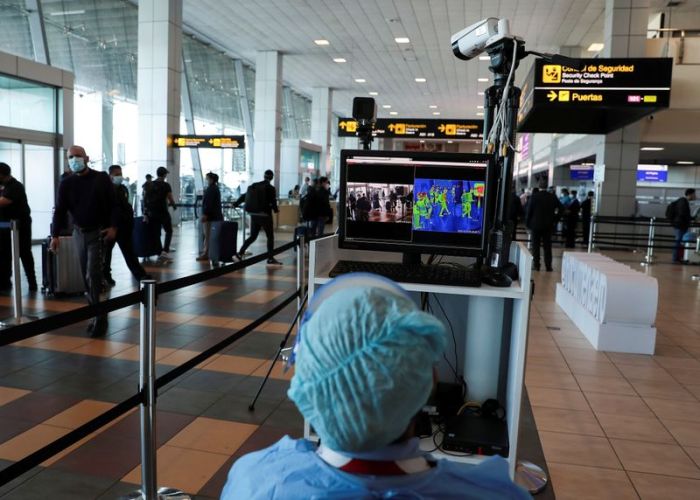COPENHAGEN (Reuters) – Denmark imposed new lockdown measures on Tuesday aimed at curbing the rapid spread of a new coronavirus variant that is believed to be more transmissible, the country’s prime minister said.
Danish health authorities said they expected the new virus variant, first detected in Britain, to be the dominant one in Denmark by mid-February.
“The mutation is already so widespread that it cannot be stopped.” Prime Minister Mette Frederiksen told a news conference. “But we can delay it and drag out the time so we can vaccinate more people.”
The Nordic country saw a drastic rise in new coronavirus cases and hospitalizations last month, pushing hospitals to the brink of their capacity, although numbers have stabilized over the past week.
The new restrictions include lowering the limit on public gatherings to five from an earlier 10 people, while a two-metre distancing rule will be introduced in public areas, including shops.
The move follows a hard lockdown in December that included closing bars, restaurants and other non-essential shops.
The country’s State Serum Institute, which deals with infectious diseases, has developed a new PCR-test, which can detect the new variant, allowing authorities to monitor the virus more closely.
Denmark registered 1,992 new cases and 31 coronavirus-related deaths on Tuesday, while the reproduction rate – which represents the average number of people that one infected person will pass the virus on to – fell to 1, from 1.2 a week ago.
Health authorities said 51,500 people had been vaccinated as of Tuesday, or 0.9% of the population, while vaccinations at the country’s around 900 nursing homes would be concluded this week, one week sooner than planned.
(Reporting by Nikolaj Skydsgaard, Jacob Gronholt-Pedersen and Tim Barsoe; Editing by Kevin Liffey, Paul Simao and Alex Richardson)
























